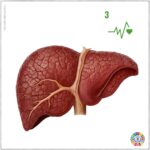Today we remember all those who have served in uniform – past and present. Veterans’ Day is not a day of silence, but a day of conscious remembrance and recognition.It... Read more
World Drowning Prevention Day
Reminder on the Importance of
World Drowning Prevention Day, observed annually on July 25th, is a crucial reminder of the importance of addressing and preventing one of the most overlooked public health issues globally—drowning. This day serves as a vital platform to raise awareness, educate communities, and promote measures that can save countless lives from preventable drowning incidents. The significance of this day cannot be overstated, as the global drowning statistics paint a grim picture, highlighting the urgent need for concerted efforts to mitigate this preventable tragedy.
The Stark Reality of Drowning
Drowning is a leading cause of accidental death worldwide, with the World Health Organization (WHO) estimating that it claims the lives of around 236,000 people each year. It disproportionately affects children and young people, particularly in low- and middle-income countries where water safety measures are often lacking. For every fatal drowning, many more experience non-fatal drowning incidents, which can result in severe injuries and long-term disabilities.
The Role of Education and Awareness
The key to preventing drowning lies in education and awareness-raising. By informing communities about the risks associated with water and promoting safe practices, we can significantly reduce the incidence of drowning. Here are some critical areas where education and awareness can make a profound impact:
- Water Safety Education: Teaching children and adults about the dangers of water and how to stay safe can prevent many drowning incidents. This includes understanding water currents, the importance of wearing life jackets, and the risks of swimming alone.
- Swimming Skills: Providing access to swimming lessons can equip individuals with essential skills to protect themselves and others in water. Knowing how to swim is a fundamental life skill that can save lives.
- Supervision and Lifeguarding: Educating communities about the importance of constant supervision of children around water bodies and the role of trained lifeguards can prevent many accidents. Parents and caregivers need to be vigilant, especially in recreational water settings.
- Emergency Response Training: Basic training in first aid and CPR (cardiopulmonary resuscitation) can empower bystanders to act swiftly and effectively in the event of a drowning incident. Immediate response can make the difference between life and death.
- Policy and Infrastructure: Advocacy for policies and infrastructure improvements, such as the installation of barriers around wells, pools, and other water bodies, and the implementation of safe boating regulations, can significantly reduce drowning risks.

Collective Efforts for a Safer World
World Drowning Prevention Day underscores the need for a collective effort to address this global issue. Governments, non-governmental organizations, communities, and individuals all have roles to play in preventing drowning. Initiatives can include:
Community Awareness Campaigns: Organizing events and campaigns to spread information about drowning prevention can reach a wide audience and foster a culture of water safety.
School Programs: Integrating water safety and swimming lessons into school curriculums can ensure that children learn these essential skills from a young age.
Partnerships and Collaboration: Working with local authorities, international organizations, and private sector partners can amplify efforts and bring about sustainable change.
Conclusion
World Drowning Prevention Day is a powerful reminder of the immense importance of education and awareness in preventing drowning. By prioritizing water safety education, swimming skills, supervision, emergency response training, and advocating for supportive policies, we can save countless lives and prevent the heartbreak and loss that drowning brings. As we observe this day, let us commit to taking proactive steps to make our communities safer and protect the most vulnerable among us from the risks of drowning.








